Tips for navigating a post-HDTV world.

IF YOU’RE CONSIDERING BUYING a new TV, you can be forgiven for having questions, possibly many of them. Several big-screen TV technologies—Ultra HDTV, high dynamic range (HDR), OLED—have been introduced over the past few years. At the same time, some older ones, including 3D and plasma, have faded from prominence. There have also been changes on the connectivity front, with new versions of the HDMI standard added to sets to accommodate new, higher-bandwidth signal formats.
The good news is that changes in TV tech have settled down to a degree, making buying a set a relatively safe bet today. The number of display types has been effectively reduced to two, LCD and OLED, and many new Ultra HDTV models are now compatible with HDR. Also, virtually all sets that were introduced in 2016 sport at least one HDMI 2.0a input—the latest version—along with the necessary copy protection to enable viewing new formats like Ultra HD Blu-ray.
LCD or OLED?
The most common TV display technology, one that’s offered by all manufacturers large and small, is LCD. The main benefit to LCD is light output: Picture brightness can be cranked high enough to accommodate situations such as watching sports in a well-lit room. At the same time, many high-end LCD TVs feature backlight modulation technology, which lets them achieve the deep black levels and high contrast ratios that are favorable for watching movies. Another LCD benefit is cost, with 50-inch Ultra HD models currently selling for as low as $500.
This story is from the {{IssueName}} edition of {{MagazineName}}.
Start your 7-day Magzter GOLD free trial to access thousands of curated premium stories, and 9,000+ magazines and newspapers.
Already a subscriber ? Sign In
This story is from the {{IssueName}} edition of {{MagazineName}}.
Start your 7-day Magzter GOLD free trial to access thousands of curated premium stories, and 9,000+ magazines and newspapers.
Already a subscriber? Sign In
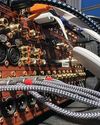
The Big Clean
Chances are you probably do not think about the state of your electronic devices too often. Oh, you might think about all the upgrades you would like to make; where you would put those new tower speakers, or how a second or third subwoofer would really tame those bass modes in your room, or how much more cinematic a larger screen would be. Sure, you think about that part of your system. But how often do you think about the well-being of your system?
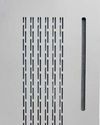
Planar-Magnetic Attraction
THE DIPTYQUE DP 115 speakers are a new model 2-way, ribbon, and planar magnetic driver dipole \"isodynamic\" speaker system designed and built in France.
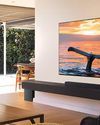
Full-Featured 4K
THE QN95D is one of two televisions we went hands-on with on a recent trip to Samsung's New Jersey QA Lab, the other being the S95D quantum-dot OLED.

Party Animal
FOR ANY party, the Soundcore Boom 2 Plus Outdoor Bass Bluetooth Speaker is an essential invite.

It's the End of the World. How About Popcorn and a Movie?
Attention all preppers! Today's column is right up your alley-or, more precisely-your tunnel to your underground bunker.
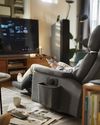
Bridging the Analog-Digital Gap on a Recliner
When I shopped for a motorized recliner, I rejected models with their own Internet Protocol address and built-in speakers. No need. I had already placed a smart speaker on an étagère beside the space where I had planned to put the chair. I'd have a smartphone in my hand and the room would be bathed in Wi-Fi.

BACK TO THE GARDEN
AN AQUARIAN EXPOSITION in WHITE LAKE, N.Y.

Big Sound, Small Price
DOLBY ATMOS, once a costly premium, is enjoying a surge of popularity across a range of new audio gear.
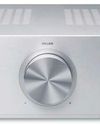
Classic Sound with Streaming Smarts
THE TWENTIETH century had its Roaring Twenties; welcome to the twenty-first's Streaming Twenties.
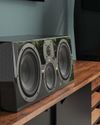
Stand and Deliver
IT DOESN'T seem all that long ago that SVS first entered the audio scene.